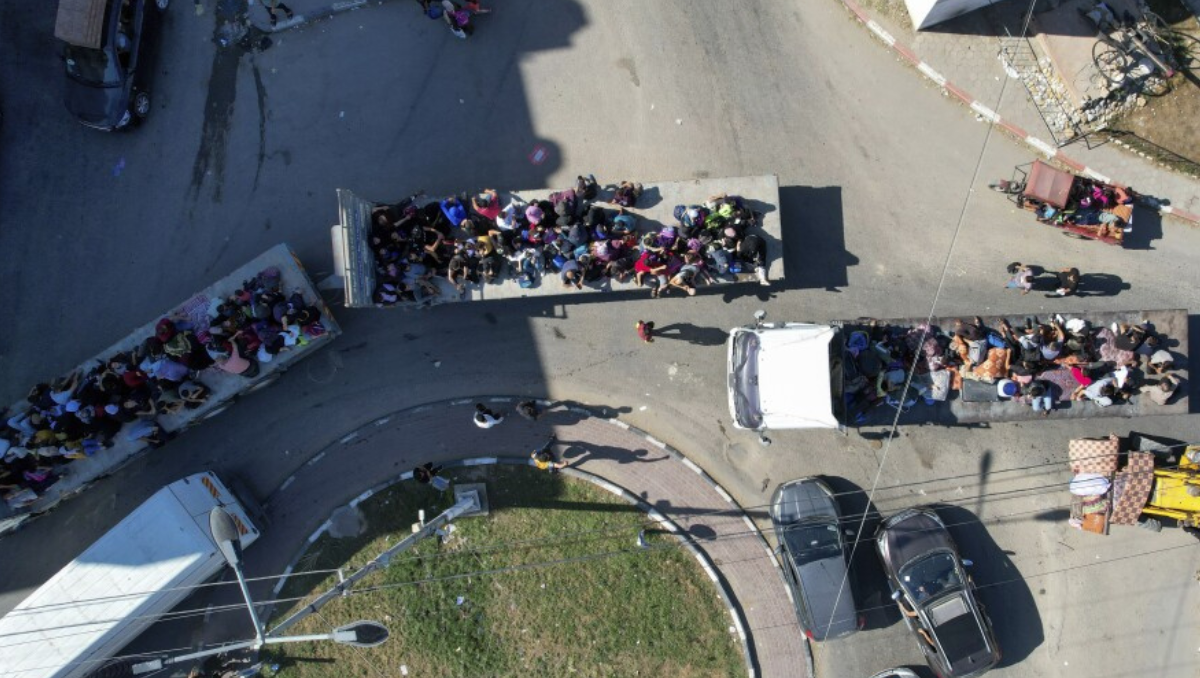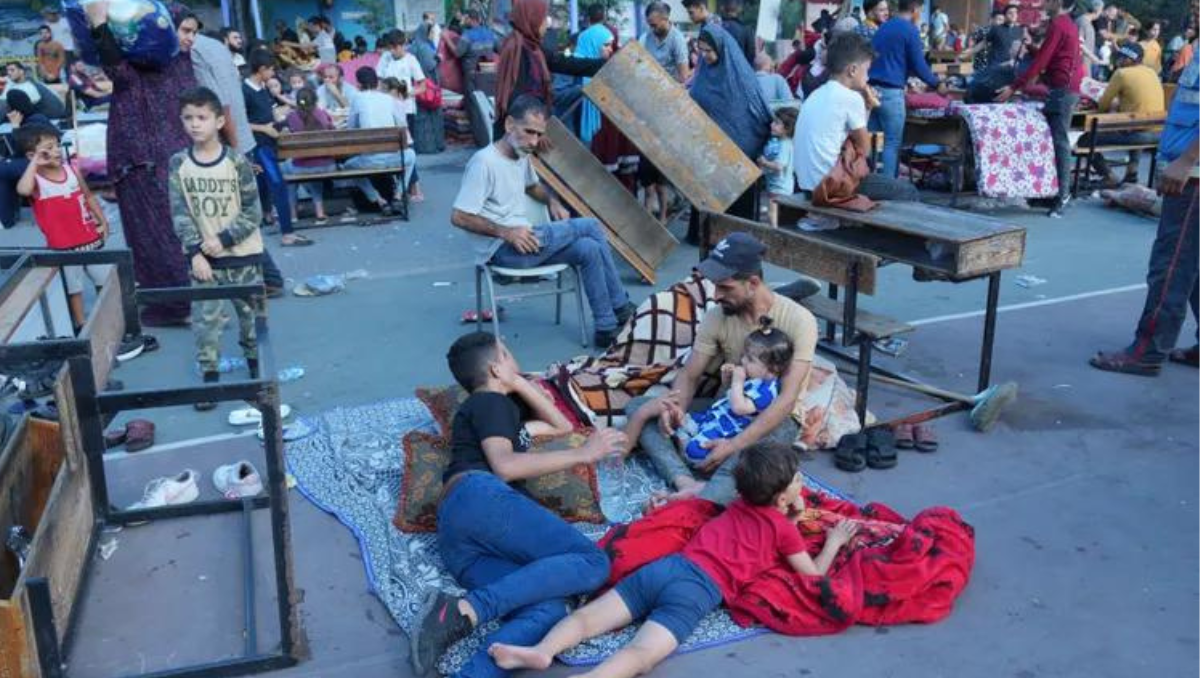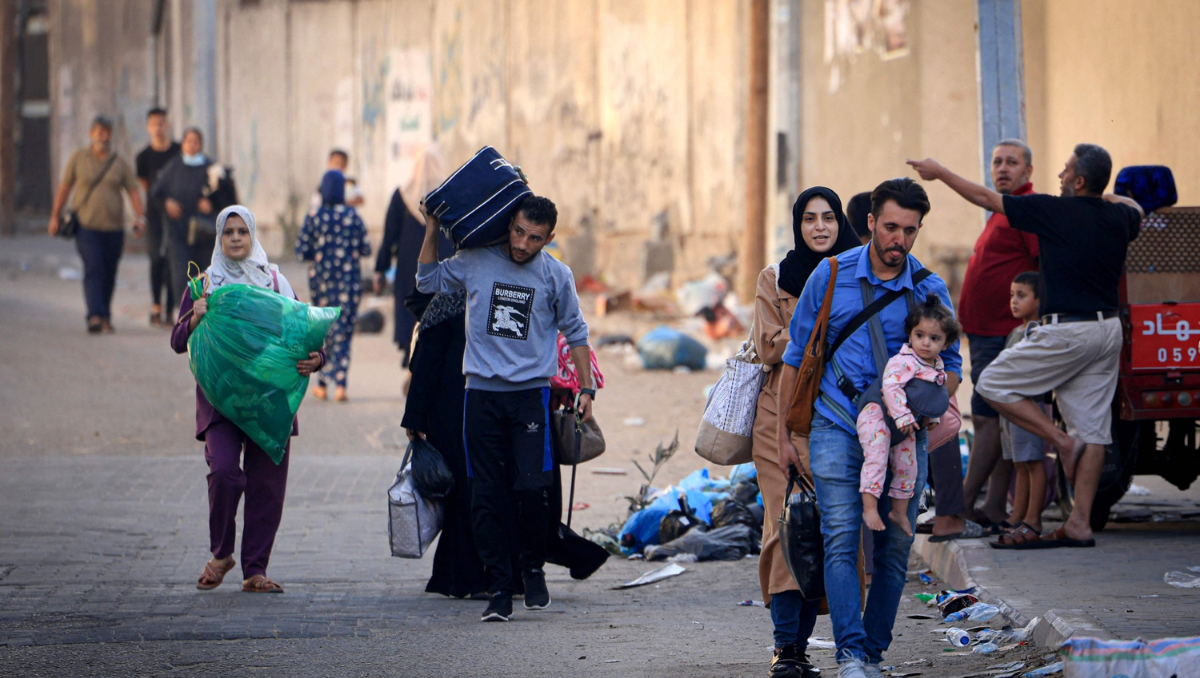Table of Contents
On October 14, Saturday, Israel issued an ultimatum of 24 hours to around one million Palestinians from northern Gaza to relocate to the besieged coastal part of Gaza in order “to preserve your safety” amidst an expected ground invasion in the strip. Israel’s military is urging the evacuation as it says that they plan to target the members of the Hamas organization and to find out their hideouts in Gaza City.
As the people in the densely populated area of northern Gaza adhere to the deadline, already 70 of them (mostly women and children) have been killed as Israeli airstrikes hit the roads where people along with their convoys piled with blankets were traveling. Israel has not responded to this sharing of information yet.
Since Hamas’s surprise attack on Israel on October 7, Israel has launched a full-time “war” in retaliation, killing around 1900 people and injuring many Palestinians in the process. Supply of fuel, water, and food has also been cut until the hostages are safely returned, Israel Kutz (Israel’s energy minister) informed. U.N. has issued a warning against the “unprecedented directive” by Israeli forces as it can result in calamitous consequences. Francesca Albanese, one of the special rapporteurs on the Occupied Palestinian Territories, said “This is a massive and alarming population transfer.”

A fresh wave of fear and anxiety runs among the Palestinians as many of them fear that this might lead to “permanent displacement” since Israel has not issued any announcement regarding when the displaced population of northern Gaza can return to their homes. Nepal Farsakh, a spokesperson for the Palestinian Red Crescent in Gaza City said while sobbing that at this point, it doesn’t matter if we have fuel, food, or electricity, “the only concern now is just if you’ll make it if you’re going to live”.
Meanwhile, Hamas has issued a statement urging Palestinians to stay in their homes as this mass exodus is being ordered to “create confusion” among people and to disturb the cohesion of their “internal front”.
Israel-Hamas War: What have Palestinians got to say?

Many Palestinians, despite the issue of warning, have decided to stay in their homes and face whatever grave situations come next, especially those who have witnessed the 1948 exodus where they had to leave their homes with a promise that they could return in a few days or perhaps weeks, only to realize later that they were never allowed to come back. In 1948, more than seven lakh Palestinians were forced to leave their homes which have now settled in present-day Israel.
After the issuing of an ultimatum, as strikes hit the roads of Gaza again, many videos have surfaced online showing people among the bloodied suitcases. A woman in her mid-70s had to be carried out by her family members against her wishes. Her niece who lives abroad informs that she has got a key on her like all the Palestinians, who wonder if they will ever be able to return home again. Mohammed el-Herbawy, owner of a party center in Gaza City said that no safety can be ensured as “there is no cease-fire for us to be able to leave.”

Ms. el-Rayes, who arrived at her friend’s place in the southern part of Gaza along with her family, informed that they are thinking of going back to their home as it would be better for them to die in their own home. Just when they reached, an Israeli strike hit the nearby area. The plight of Palestinians becomes painstakingly evident through the aforementioned sentences.
The 1948 exodus has left indelible imprints of trauma on the minds of the older generations who still carry keys to their homes with them, hoping that someday they will get to return. in the dangerous times that we are living in, hope is perhaps the only thing that one can cling to, to traverse through the murky waters of these violent events.



